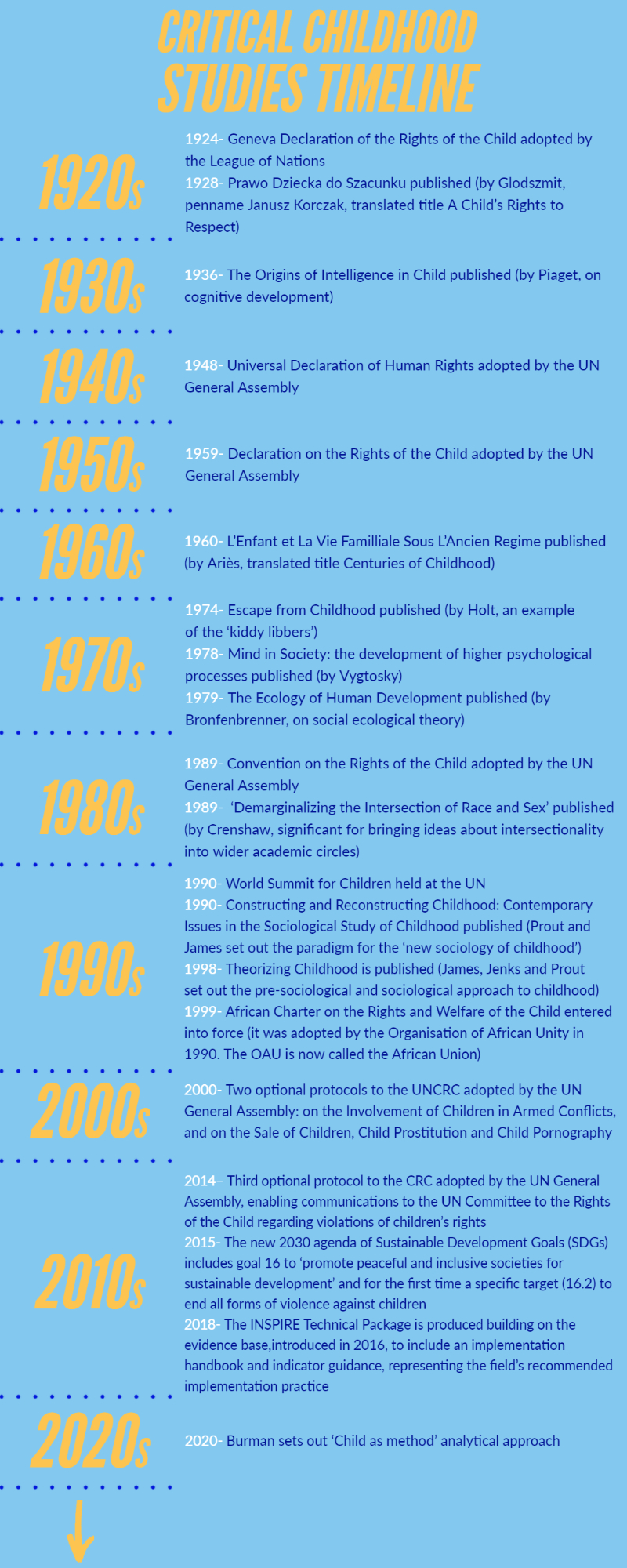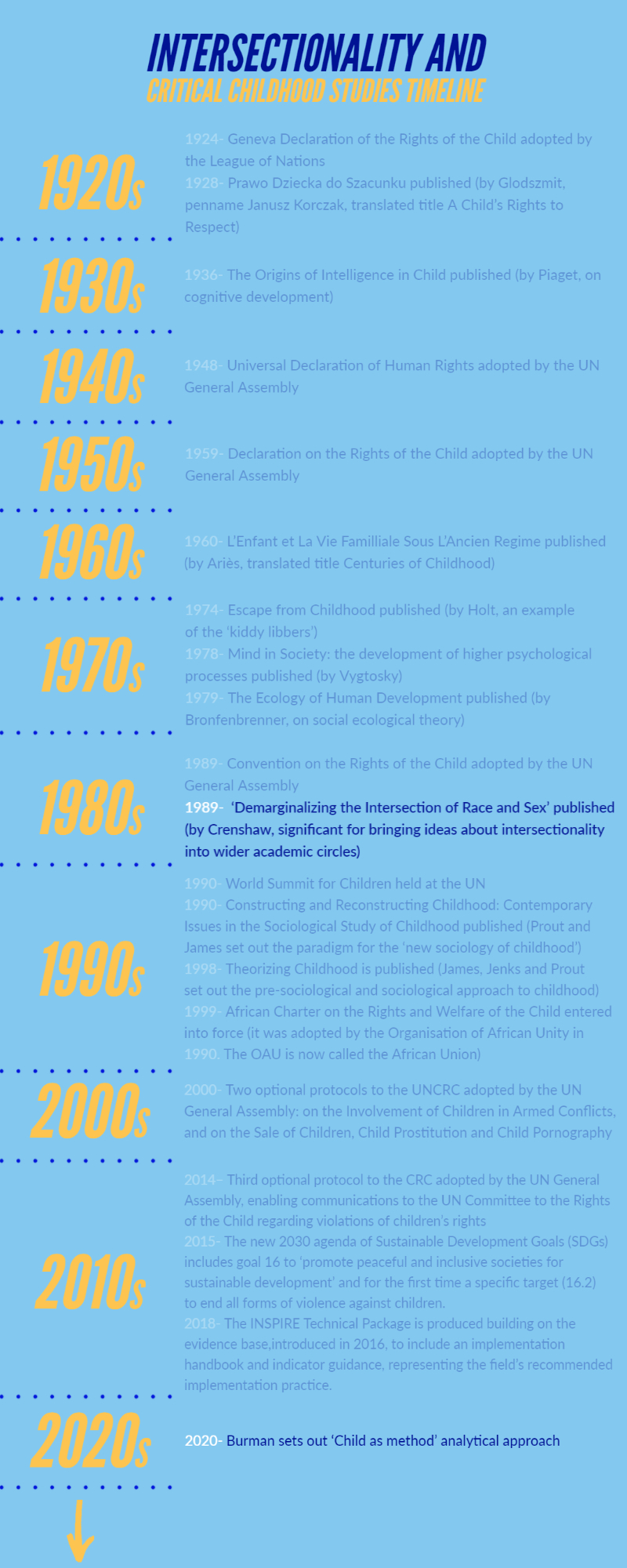


Are you sure you want to reset the form?
Your mail has been sent successfully
Are you sure you want to remove the alert?
Your session is about to expire! You will be signed out in
Do you wish to stay signed in?
Explore the illustrated critical childhood studies timeline presented in this book, and toggle to individual chapters to see how these events relate to different childhood studies topics.

